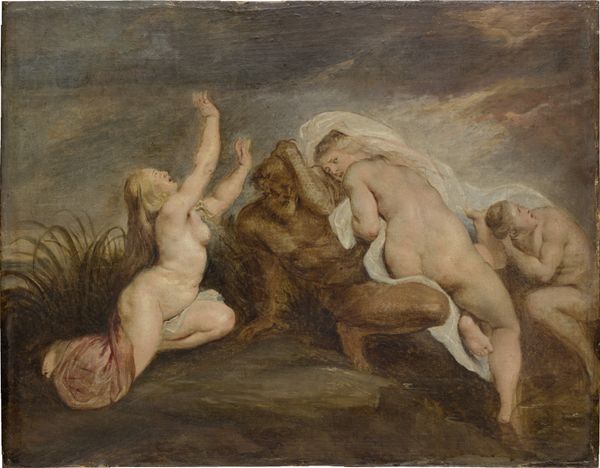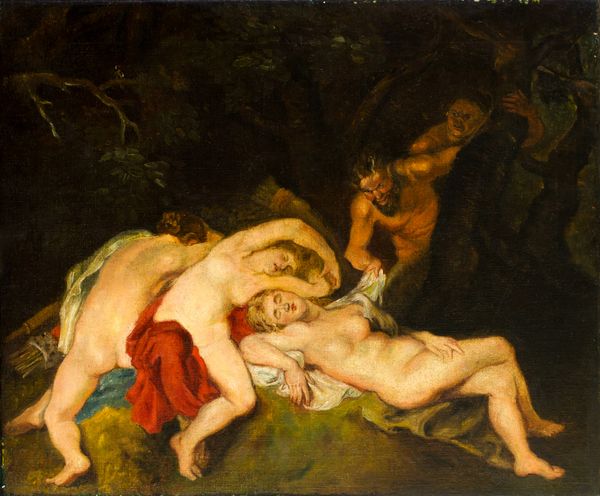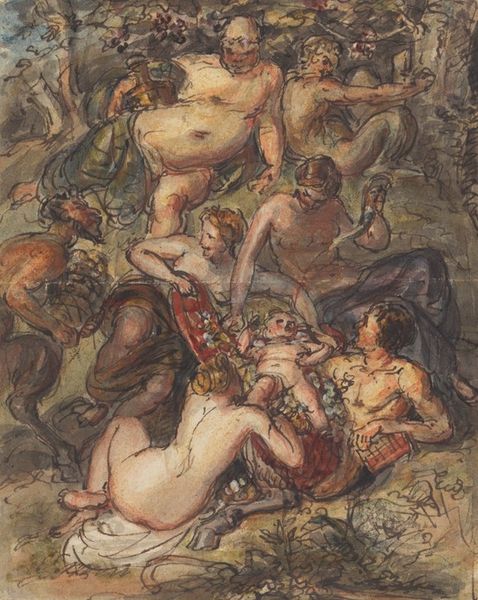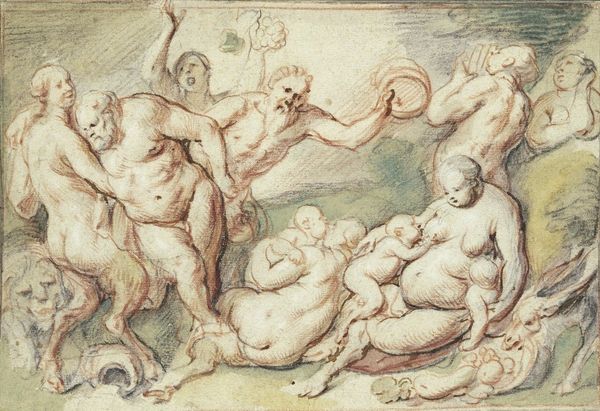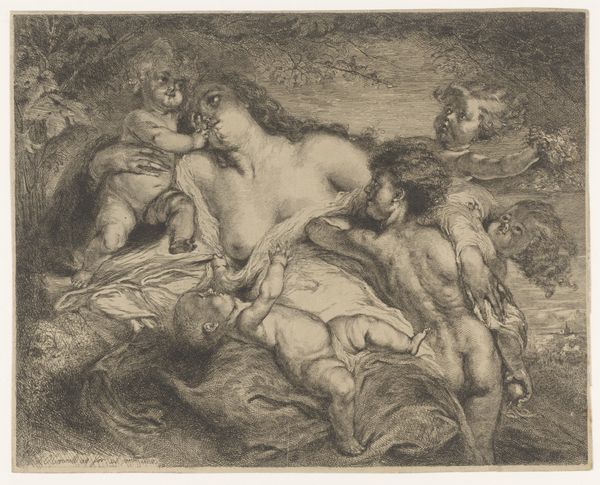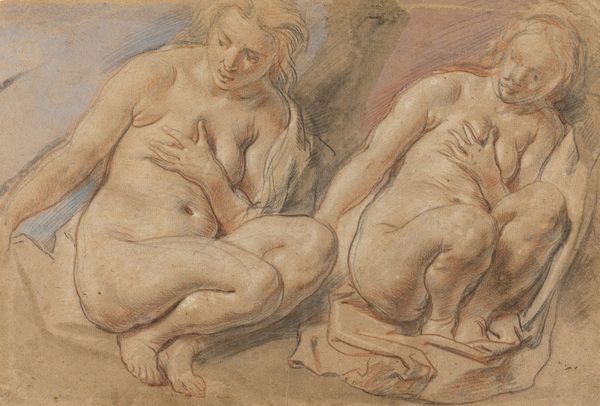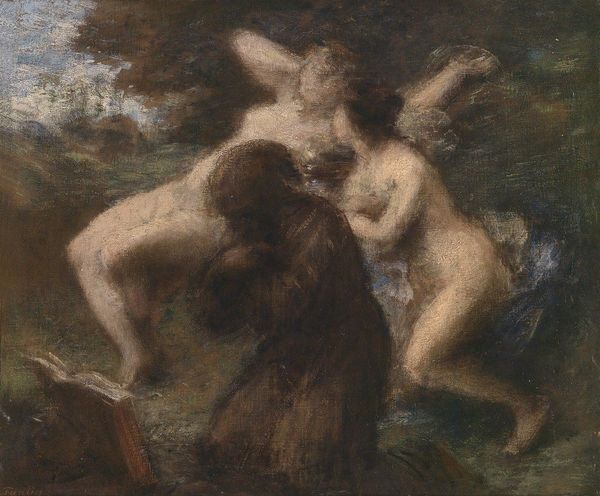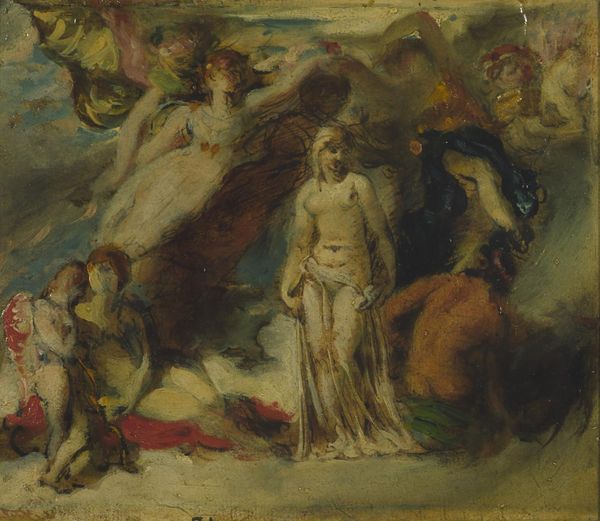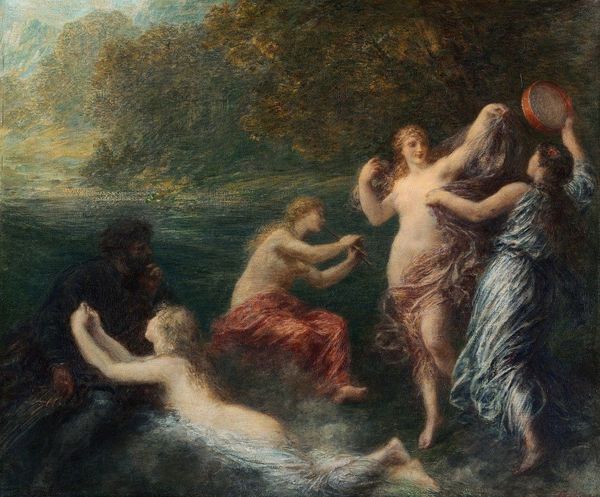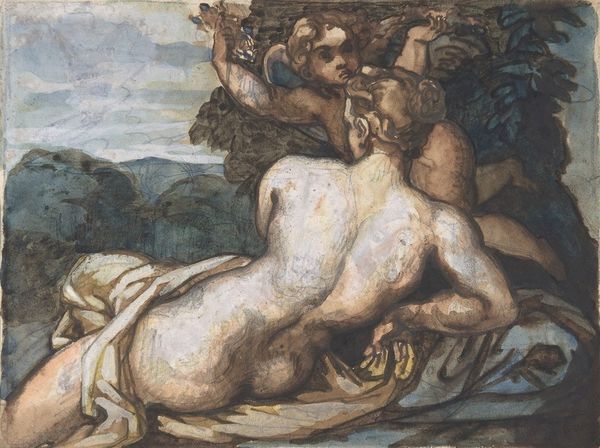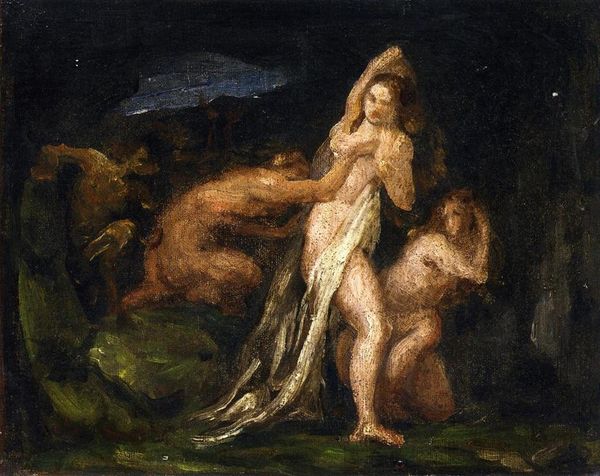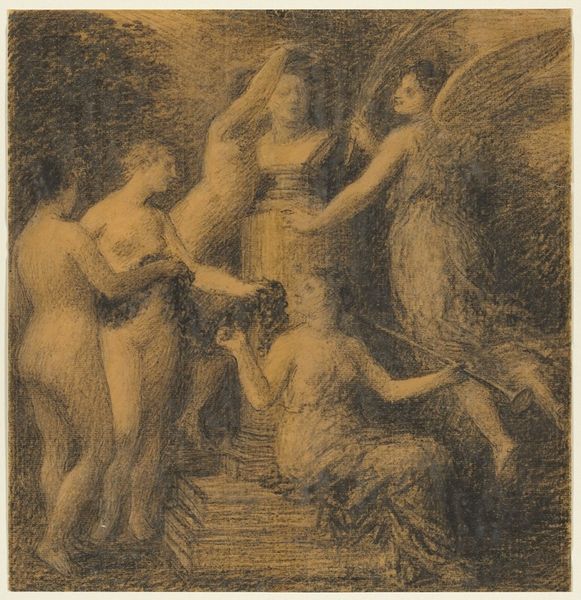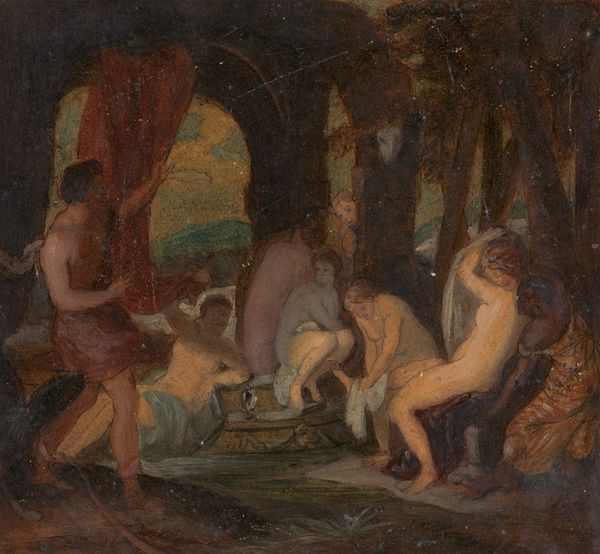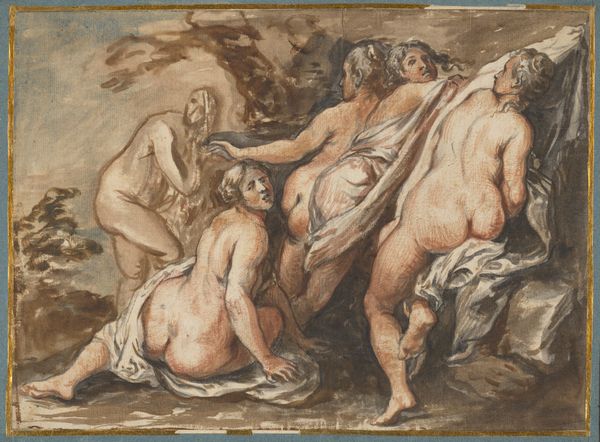
Copyright: Public domain
Curator: Before us hangs Károly Lotz’s 1876 painting, "Bakchanálie," rendered in oil on canvas. It plunges us right into a whirlwind of movement and flesh. Editor: My initial impression is one of dizzying sensuality, almost overwhelming. The figures seem caught in a frantic dance, a bacchanal of blurred limbs and ambiguous forms. It evokes a frenzied energy, doesn’t it? Curator: Indeed. Lotz employs a dynamic composition. Note how the figures are clustered towards the center, drawing the eye inward. The lack of defined edges and the warm, earthy palette contribute to the painting's overall feeling of chaotic energy. Observe also the use of light – it seems to emanate from within the figures themselves. Editor: And consider the historical context. This piece arrives during a period of intense academic painting. Works depicting mythical or allegorical themes were highly favored by patrons of the time. This wild and sensuous depiction challenges the strict morals of the time period it was made in, which also challenged conservative academies that preferred historical events. Curator: A perceptive point. We could also discuss the role of the nude within artistic traditions. Note that these figures aren't idealized in the classical sense. There’s a rawness to their presentation that aligns with Romanticism’s focus on emotion and instinct. It departs from earlier notions of proportion, beauty and control. Editor: Precisely. What fascinates me is how this painting embodies the tensions of its era. It simultaneously embraces classical motifs, specifically allusions to Bacchus and his followers, while edging toward a more modern expression of unrestrained human behavior. Did Lotz attempt to explore how power affects the mind, and explore social hierarchies this way? Curator: An intriguing thought to investigate in the history. Ultimately, regardless of precise interpretation, “Bakchanálie” remains a stunning display of Lotz’s command of color and form. It presents the viewer with the feeling and the idea behind Bakchanálie rather than the historical retelling. Editor: A vital experience. Thank you for guiding me with it! Curator: It was my pleasure.
Comments
No comments
Be the first to comment and join the conversation on the ultimate creative platform.
